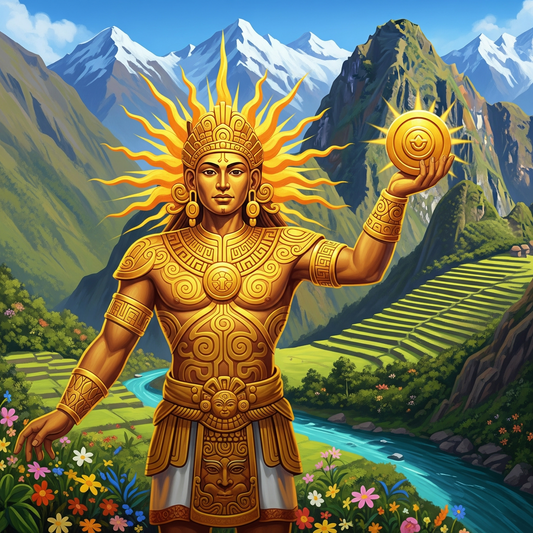The Tears of Saturn
Share

In the twilight of the Golden Age, when Saturn still walked amongst mortals, the earth was a garden of perpetual abundance. He ruled with a gentle hand, ensuring the seasons turned with predictable grace, and the harvests were bountiful. Yet, a deep melancholy resided within him, a subtle sorrow for the inevitable passage of time and the knowledge that even this idyllic era would fade.
One autumn, as the air grew crisp and the leaves began to turn, Saturn wandered through a hidden grove, a place where the veil between the mortal realm and the divine was thin. He felt the weight of time pressing upon him, the knowledge that even his reign would eventually yield to change. Overwhelmed by this poignant beauty and the sorrow of its fleeting nature, he wept.
His tears, imbued with his divine essence and the earth's fertile power, fell upon the dark, rich soil. From these tears, a strange, new plant sprouted, bearing leaves of a deep, velvety green and emitting a fragrance that was both earthy and intoxicating. This was the first patchouli.
The scent, heavy and complex, mirrored the depth of Saturn's emotions. It held the richness of the earth he nurtured, the melancholy of time's passage, and the lingering sweetness of the Golden Age. The mortals who discovered it were captivated, finding in its aroma a sense of both grounding and transcendence.
Saturn, seeing the plant that had sprung from his sorrow, understood its significance. He decreed that patchouli would serve as a reminder of the ephemeral beauty of the world and the importance of cherishing each moment. It would be used in rituals to honor the passage of time, to invoke the earth's bounty, and to remind mortals of the subtle melancholy that underpins all beauty.
During the Saturnalia, when the boundaries of time blurred and the past, present, and future intertwined, patchouli was burned as incense, its fragrance filling the air with a sense of ancient wisdom and earthly comfort. Thus, patchouli became a sacred herb, a testament to Saturn's tears and a reminder of the bittersweet nature of existence, forever linking the god of time and harvest to the earth's profound fragrance.









